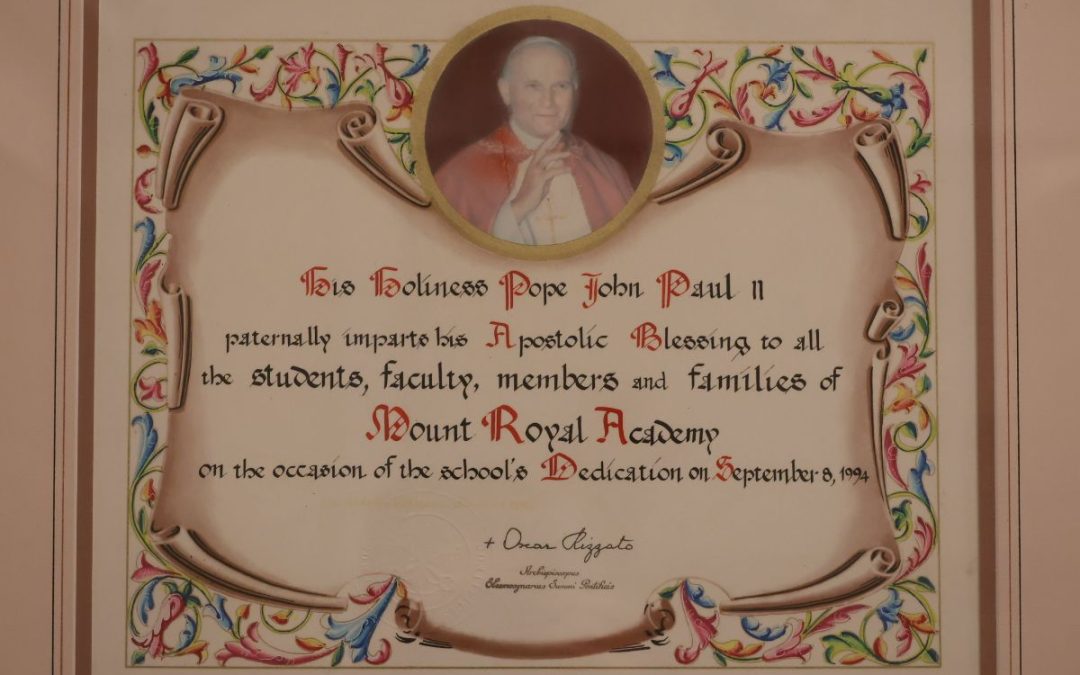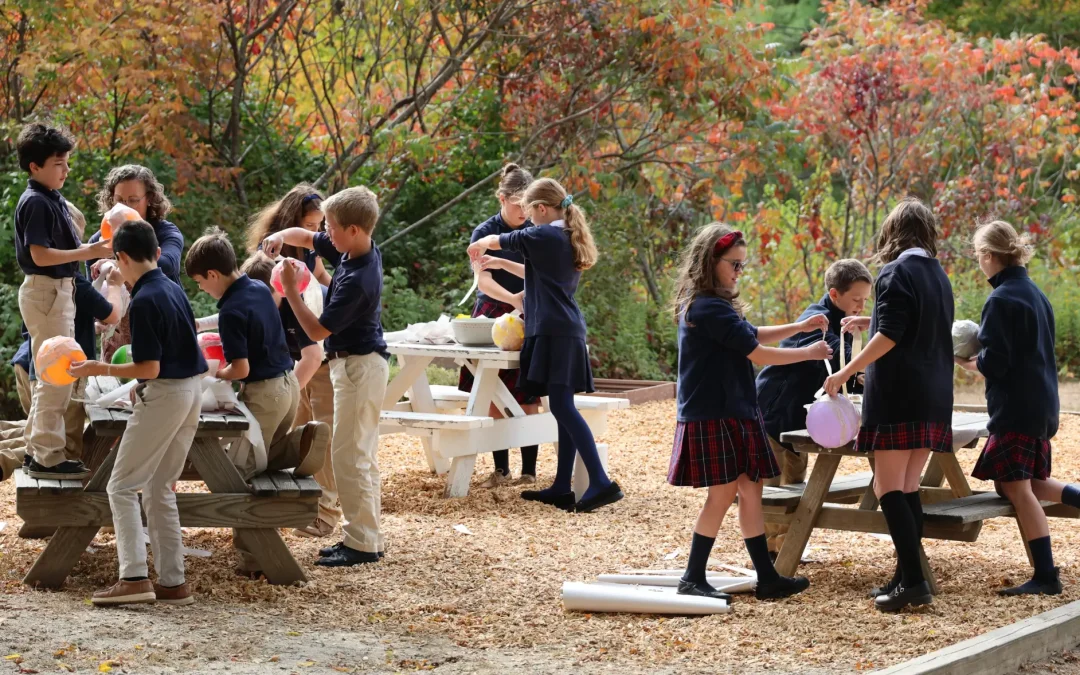I think one of the greatest thrusts of our educational philosophy is to always go to the source. This is why we read texts such as the Old Testament and The Communist Manifesto. Doing so allows students to encounter objective truth and reality on their own without editorializing or absorbing commentary that may be inconsistent with the truth itself. Mr. Bean recently shared excellent insights on this staple of our mission on our school’s podcast when discussing how and why the Old Testament should be read with high school students.
If you haven’t already done so, I encourage you to scan the episode titles and listen to our qualified and faithful faculty as they answer all sorts of challenging questions from the host (which is me)!
Perhaps you are aware that Pope Leo released an apostolic letter on Catholic education. For this month’s newsletter, I am going to share seminal excerpts instead of offering any commentary so I can stay true to our mission!
“Educating is an act of hope and a passion that is renewed because it manifests the promise we see in the future of humanity. The specificity, depth and breadth of educational action is the work – as mysterious as it is real – of “making the being flourish […] is taking care of the soul,” as we read in Plato’s Apology of Socrates (30a–b). It is a “profession of promises”: it promises time, confidence, skill; it promises justice and mercy, it promises the courage of the truth and the balm of consolation. Educating is a labour of love that is handed down from generation to generation, mending the torn fabric of relations and restoring the weight of promise to words: “Every man is capable of truth, yet the journey is much more bearable when one goes forward with the help of another.” Truth is sought in community.
Christian formation embraces the entire person: spiritual, intellectual, emotional, social, physical. It does not pit manual and theoretical skills, science and humanism, technology and conscience against each other; rather, it demands that professionalism be imbued with ethics, and that ethics be not an abstract concept but a daily practice. Education does not measure its value only on the axis of efficiency: it measures it according to dignity, justice, the capacity to serve the common good. This integral anthropological vision must remain the cornerstone of Catholic pedagogy. Following in the wake of the thought of Saint John Henry Newman, it goes against a strictly mercantilist approach that often forces education today to be measured in terms of functionality and practical utility.
The Catholic school is an environment in which faith, culture and life intertwine. It is not simply an institution, but rather a living environment in which the Christian vision permeates every discipline and every interaction. Educators are called to a responsibility that goes beyond the work contract: their witness has the same value as their lessons. For this reason, the formation of teachers – scientific, pedagogic, cultural and spiritual – is decisive. Sharing the common educational mission also demands a path of common formation, “an initial and permanent project of formation that is able to grasp the educational challenges of the present time and to provide the most effective tools for dealing with them… This implies that educators must be willing to learn and develop knowledge and be open to the renewal and updating of methodologies, but open also to spiritual and religious formation and sharing.” Technical updates are not enough: it is necessary to cultivate a heart that listens, a gaze that encourages, and an intelligence that discerns.
The family remains the first place of education. Catholic schools collaborate with parents; they do not substitute them, because the “duty … devolves primarily on them.” The educational alliance requires intentionality, listening and co-responsibility. It is built with processes, tools, shared assessments. It is both hard work and a blessing: when it works, it inspires trust; when it fails, everything becomes more fragile.” – Mr. Derek Tremblay, Headmaster



